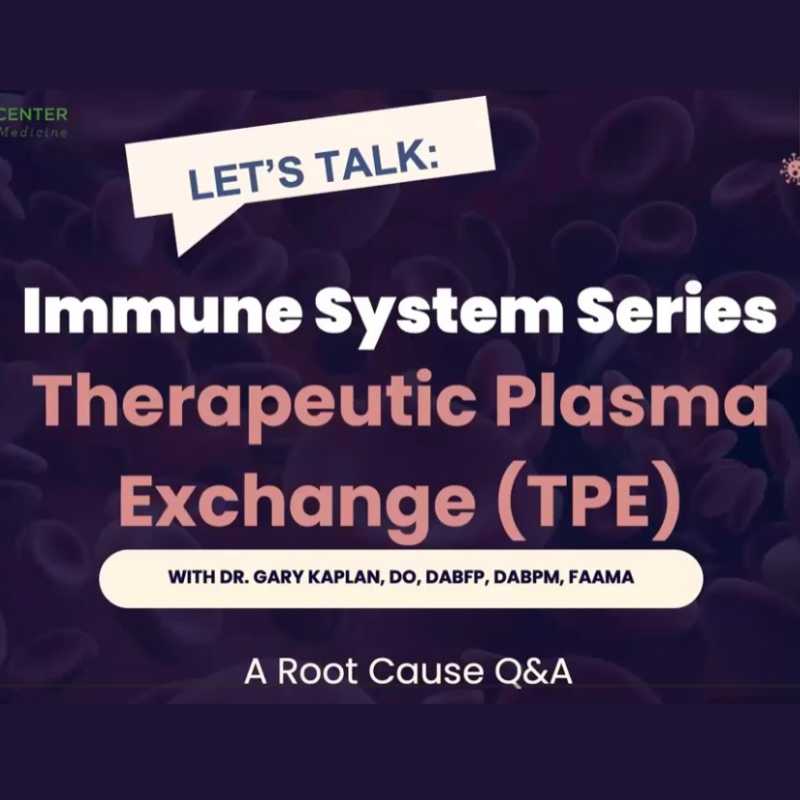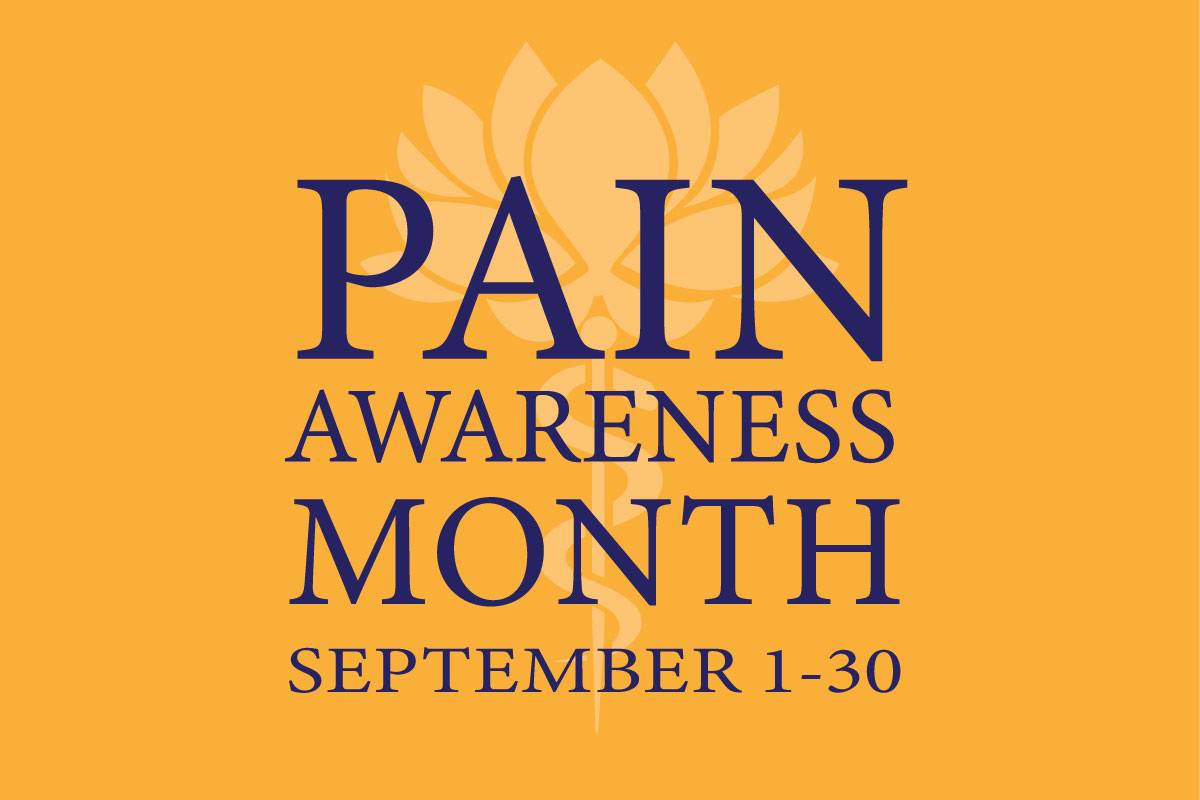
5 Ways We Can Keep Your Immune System Strong
December 10, 2025/by Kaplan Center
Want to Take Your Workout to the Next Level Next Year? These Tips Can Help
December 8, 2025/by Kaplan Center
Dr. Kaplan’s Dos and Don’ts of the Holiday Season
December 3, 2025/by Kaplan Center
Let’s Talk Webinar – A Root Cause Q&A
December 2, 2025/by Kaplan Center
Navigating Holiday Meals with Gut Issues: Simple Tips for a Comfortable Season
December 1, 2025/by Chardonée Donald, MS, CBHS, CHN, CNS, LDN
Craniosacral Therapy for TMJ | Say Goodbye to the Daily Grind
November 19, 2025/by Patricia Alomar, M.S., P.T.
From Compassionate Care to Personal Healing: A Letter to My Patients
November 18, 2025/by Kaplan Center
8 Steps to a Healthier Gut—and a Longer, Healthier Life
November 18, 2025/by Kaplan Center
Mid-Life Irritability & Fatigue Improved by Hormonal Balancing
November 13, 2025/by Lisa Lilienfield, MD
From Challenges to Change: Dr. Kaplan on Healthcare’s Biggest Challenges
October 29, 2025/by Kaplan Center
Overlooked Dangers of Mold Exposure and How to Stay Safe – Dr. Kaplan Talks to WUSA9
October 27, 2025/by Kaplan Center
Let’s ‘Fall’ Into Wellness: A Nutritionist-Approved Immune-Boosting Recipe for Cold and Flu Season
October 13, 2025/by Chardonée Donald, MS, CBHS, CHN, CNS, LDN
PANS/PANDAS – When Sudden Symptoms Signal Something More
October 9, 2025/by Kaplan Center
Beating Burnout, A Nutritionist’s Perspective
October 1, 2025/by Chardonée Donald, MS, CBHS, CHN, CNS, LDN
3 Things That Can Happen After Stopping GLP-1s
September 11, 2025/by Chardonée Donald, MS, CBHS, CHN, CNS, LDN
What Families Need to Know About COVID and Flu Season
September 3, 2025/by Kaplan Center
September is Pain Awareness Month
September 1, 2025/by Kaplan Center
Dr. Kaplan Spoke to Northern Virginia Magazine About COVID, Flu, and Immunity — Here’s What You Should Know
August 14, 2025/by Kaplan Center
“Why Do I Feel Like Crap?”: The Overlap Between Long COVID and Perimenopause
July 30, 2025/by Kaplan Center
Why People Are Turning to EMDR (and Why You Might Want to Too)
July 23, 2025/by Kaplan CenterAre you looking to improve your overall wellness?
Personalized care you can trust.
Our integrative, non-surgical treatment approach is highly successful in maintaining wellness and also treating chronic pain and illness. For more than 30 years, we have delivered superior, cutting-edge health care in the Washington, DC area.
QuickLinks
Contact Information
Tel: 703-532-4892
Fax: 703-237-3105
6829 Elm Street, Suite 300
McLean, Virginia 22101
Map It
Hours of Operation
Mon – Thu : 8 am – 5 pm, ET
Fri : 8 am – 12 pm, ET
7 Minutes a Day For Better Health
/in Treatments, Wellness/by Lisa Lilienfield, MDGet moving and boost your immune system!
A N.Y. Times article cited a 2020 study out of Stanford where 36 subjects with various fitness levels exercised on a treadmill for 9-10 min and using the latest techniques showed almost 10,000 molecular changes during and after exercise.
With these new techniques, called “omics”, the researchers have isolated various molecules in our bloodstream that alter our biology. Metabolomics looks at molecules like appetite hormones and enzymes produced by the microbes in the gut; genomics looks at changes in gene expression; immunomics looks at the changes in the immune system; and, proteomics and lipidomics look at changes in proteins and fats. The list goes on. The author of the study quotes there is an “ orchestrated choreography of biologic processes” demonstrated to occur.
Why is this research important?
Recently we find that we are spending more time at home. We find ourselves sitting in front of the computer more than ever. Sitting too much weakens our immune system, increases the risk of diabetes, heart disease, depression and decreases bone density. We need to learn to be more creative about how we move our bodies.
We are all concerned about how robust our immune system is against potential illnesses.
One of the best immune boosters is exercise and this recent study out of Stanford, published in the journal Cell, showed even less than 10 min of exercise produces changes in thousands of molecules which affect inflammation, DNA and tissue repair, insulin resistance, oxidative stress, metabolism, immunity, and appetite.
Questions? Give Us a Call!
703-532-4892 x2
With less access to gyms, we need to be creative about making sure we incorporate exercise into our daily routine.
Hiking, biking, running, and many online classes including yoga are available. In addition, a total body workout is ideal to keep all of our muscles strong and stimulate bone density.
If time is short, one way is to do a 7-8 min workout using body weight and minimal props. Combining this with yoga improves bone density, strengthens our immune system, and stimulates proteins that reverse aging. So get out of your chair and move!
And there’s more to keep in mind…
We are here for you, and we want to help.
Our goal is to return you to optimal health as soon as possible. To schedule an appointment please call: 703-532-4892 x2
Identifying the Root Cause of Digestive Symptoms
/in Digestive Issues, Wellness/by Kaplan CenterFood is at the very center of everything that we do. The nourishment obtained from food is what keeps our body strong, fit, and healthy.
Digestion is an important part of our overall well-being. It’s intricately tied to a healthy immune system and the ability to fight disease. The gut microbiome, which is composed of hundreds of billions of bacteria and viruses residing in our intestines, is often referred to as our “second brain” because these friendly bugs produce and release brain chemicals such as serotonin that is directly linked to our mental health and improvement of depression and anxiety. That’s why unhealthy diets may worsen those symptoms.
At The Kaplan Center we don’t think of digestion as just the mechanics of eating. Digestion is a whole-body process. When looking for solutions to treat digestive problems, that’s exactly how we view it.
Imbalances in the digestive system
Digestive disorders in the United States are on the rise, and along with it the sales of over-the-counter (OTC) drugs and supplements. Self-medication and self-supplementation may also be a contributing factor to the exacerbation of certain conditions and can sometimes cause more harm than good. It is always encouraged to check with your healthcare provider prior to taking OTC drugs and supplements.
Symptoms related to the Gastrointestinal System (GI) issues can vary widely, sometimes unrelated to digestive discomfort.
Common signs and symptoms of digestive disturbances:
In some cases, these symptoms can be traced back to specific digestive disorders such as Inflammatory Bowel Disease (IBD), Irritable Bowel Syndrome (IBS), Small Intestine Bacterial Overgrowth (SIBO) or Gastro-esophageal reflux syndrome (GERD). At other times, these symptoms appear as a secondary manifestation of an autoimmune or infectious disease.
Investigations
Issues with the digestive system can stem from a wide range of sources. Doctors will start by taking a full medical history to find out about your specific concerns. If needed, they may recommend routine lab work to rule out any autoimmune disease such as Celiac or Crohn’s Disease. They may also order functional testing of your gut bacteria (to check if you have any harmful bugs) and look for any inflammatory markers that may be contributing to your symptoms.
Treatment options
Treatment options for digestive disorders will vary and are patient-specific. Depending upon your symptoms, medical history, and lifestyle, our doctors will use that information alongside the results of any relevant tests. Our goal is to figure out the root cause(s) of your symptoms and how best to address them.
Treatment may include a combination of:
Good food and good digestion are essential for good health. Using an integrative approach, our goal is to take an in-depth look at the issues and use a variety of proven treatments to improve your digestive health.
References:
Heart Rate Variability: Helping You Live Longer, Stronger, Healthier
/in Treatments/by Jodi Brayton, LCSWThe body’s inherent ability to heal and self-stabilize erodes with age; the older we get the more we tend to lose energy, memory, and resilience to stress. It becomes harder to mend from injuries or illness and can take days to recover from workouts or overindulgence. We also are more likely to develop diabetes, hypertension, heart failure, and other afflictions as we age.
Extending our lifespan does no good if it means poorer health and higher healthcare costs. The goal is to live healthier and stronger, which ultimately means you will also live longer.
The comedian George Burns once said, “You can’t help getting older, but you don’t have to get old,” and we tend to agree! You can’t do anything about your chronological age, but you can definitely change your biological age.
Studies show biological age is a better measure for determining health status and risk than chronological age. The Kaplan Center’s Anti-Aging treatments aim to provide the maintenance needed to return the body to a more youthful state.
Heart Rate Variability (HRV) is a biomarker of the balance in the Autonomic Nervous System (ANS) and an objective measure of biological age. Because the ANS regulates our vital organs it’s extremely important that the system is operating in optimum balance.
HRV biofeedback is a simple, noninvasive, and accurate measure of stress in our nervous system and of our overall health.
Click here to learn more about Heart Rate Variability assessments.